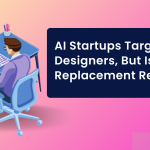Quick Take:
AI agents, beyond traditional chatbots, are emerging as digital teammates for startups, but their potential remains limited by technical and operational challenges.
Redefining AI Agents in Startups
AI agents are increasingly positioned as a transformative force for startups, capable of automating tasks across finance, logistics, and healthcare. Unlike conventional chatbots, these agents aim to function as autonomous digital teammates, handling operations that typically require human intervention.
Proponents believe AI agents can bridge resource gaps for small teams, enabling startups to compete with larger players. One commenter noted, “AI tools have already redefined coding workflows; it’s logical to see similar applications in other domains.”
Challenges in Achieving Full Autonomy
Despite their promise, AI agents are far from autonomous. Current implementations often rely on rigid workflows or require significant human oversight. As one commenter observed, “We’re still years away from agents that don’t need constant supervision. The underlying tech isn’t mature enough for fully independent operation.”
Even where AI tools excel, like generating logos or automating scheduling, they often struggle with complex or nuanced tasks. Moreover, integration across platforms remains a challenge, with many solutions requiring manual input to bridge gaps.
Potential and Limitations
AI agents are undeniably improving, but their capabilities are still constrained by the need for structured environments and robust foundational models. The promise of seamless automation is hindered by issues like reliability, standardization, and scalability.
A commenter compared the current state of AI agents to early attempts at home automation, noting, “They’re powerful in theory but limited in practice. Until platforms align on standards, these tools will struggle to deliver consistent results.”
The Road Ahead
For startups, AI agents offer exciting possibilities but demand strategic implementation. Early adopters who master the integration of AI tools into their workflows stand to gain a significant edge, particularly in automating routine tasks. However, reliance on these tools without human oversight or strategic alignment risks inefficiencies and missed opportunities.
As the technology matures, the conversation around AI agents will likely shift from “Can they replace humans?” to “How can they best complement human expertise?” Startups willing to experiment and iterate will be at the forefront of this evolution, finding innovative ways to leverage AI’s strengths while navigating its limitations.


